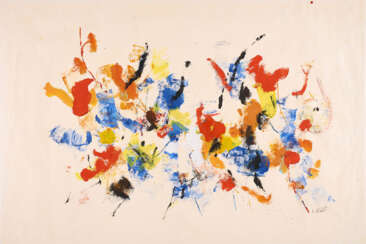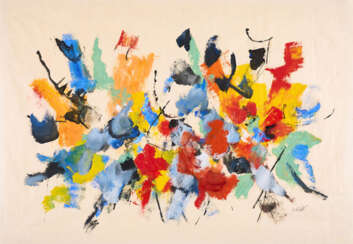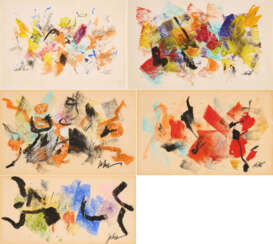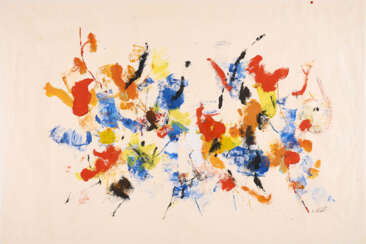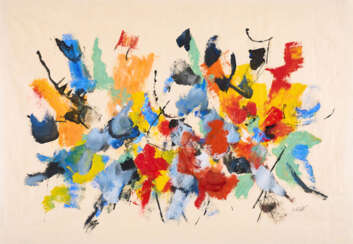John von Wicht (1888 - 1970) — Auction price
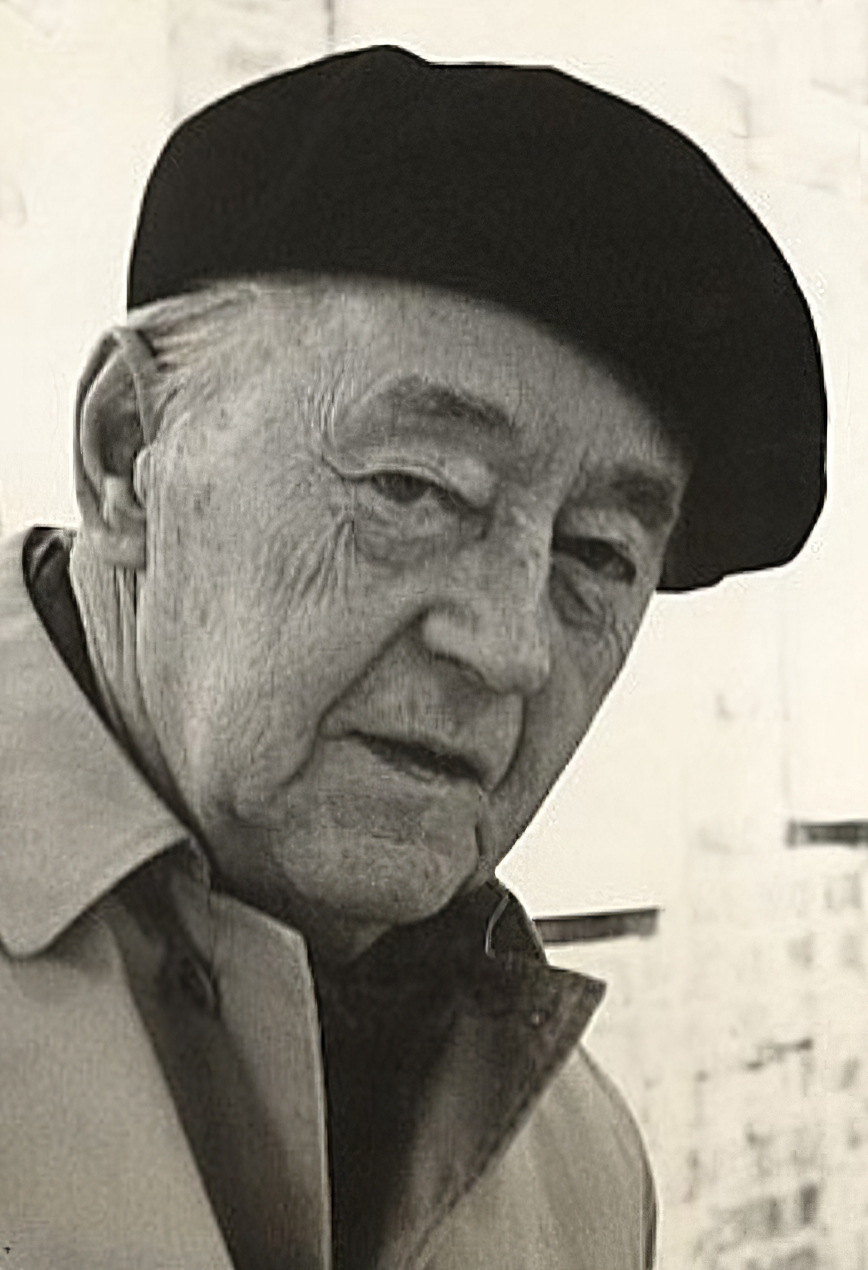
John von Wicht, birth name Johannes von Wicht was a German abstract expressionist painter.
He studied at the Royal School of Fine and Applied Arts in Berlin. There he was influenced by the urban avant-garde art scene. In 1911, von Wicht's work was included in the exhibition "Free Berlin Secession".
In 1923, von Wicht moved to the USA. While working for a mosaics company, John designed the vestibule for St Louis Cathedral in the typical Byzantine style.
Von Wicht's first attempt to represent abstraction in art was not until 1937, when he created the watercolour series The Force. Kandinsky's work had a clear influence on this series. John von Wicht was quickly recognised in the art world.
By 1950 von Wicht had dedicated himself fully to drawing and was able to explore his personal expression of abstraction as a mature artist, returning to drawing to solve problems of content and composition.
John von Wicht has marked his distinguished career with many awards, recognitions and memberships, such as American Abstract Artists. The decisive geometric elements that supported von Wicht's earlier work later felt a release of association, depicting an inner struggle with the subject. His works were gestural but carefully composed, allowing individual touch on the spiritual and natural realms of being. As an abstractionist painter, John von Wicht wanted colour to reach the viewer's emotions directly, through pure form. He left most of his work to the Syracuse University Art Collection.
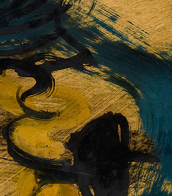

John von Wicht, birth name Johannes von Wicht was a German abstract expressionist painter.
He studied at the Royal School of Fine and Applied Arts in Berlin. There he was influenced by the urban avant-garde art scene. In 1911, von Wicht's work was included in the exhibition "Free Berlin Secession".
In 1923, von Wicht moved to the USA. While working for a mosaics company, John designed the vestibule for St Louis Cathedral in the typical Byzantine style.
Von Wicht's first attempt to represent abstraction in art was not until 1937, when he created the watercolour series The Force. Kandinsky's work had a clear influence on this series. John von Wicht was quickly recognised in the art world.
By 1950 von Wicht had dedicated himself fully to drawing and was able to explore his personal expression of abstraction as a mature artist, returning to drawing to solve problems of content and composition.
John von Wicht has marked his distinguished career with many awards, recognitions and memberships, such as American Abstract Artists. The decisive geometric elements that supported von Wicht's earlier work later felt a release of association, depicting an inner struggle with the subject. His works were gestural but carefully composed, allowing individual touch on the spiritual and natural realms of being. As an abstractionist painter, John von Wicht wanted colour to reach the viewer's emotions directly, through pure form. He left most of his work to the Syracuse University Art Collection.


John von Wicht, birth name Johannes von Wicht was a German abstract expressionist painter.
He studied at the Royal School of Fine and Applied Arts in Berlin. There he was influenced by the urban avant-garde art scene. In 1911, von Wicht's work was included in the exhibition "Free Berlin Secession".
In 1923, von Wicht moved to the USA. While working for a mosaics company, John designed the vestibule for St Louis Cathedral in the typical Byzantine style.
Von Wicht's first attempt to represent abstraction in art was not until 1937, when he created the watercolour series The Force. Kandinsky's work had a clear influence on this series. John von Wicht was quickly recognised in the art world.
By 1950 von Wicht had dedicated himself fully to drawing and was able to explore his personal expression of abstraction as a mature artist, returning to drawing to solve problems of content and composition.
John von Wicht has marked his distinguished career with many awards, recognitions and memberships, such as American Abstract Artists. The decisive geometric elements that supported von Wicht's earlier work later felt a release of association, depicting an inner struggle with the subject. His works were gestural but carefully composed, allowing individual touch on the spiritual and natural realms of being. As an abstractionist painter, John von Wicht wanted colour to reach the viewer's emotions directly, through pure form. He left most of his work to the Syracuse University Art Collection.


John von Wicht, birth name Johannes von Wicht was a German abstract expressionist painter.
He studied at the Royal School of Fine and Applied Arts in Berlin. There he was influenced by the urban avant-garde art scene. In 1911, von Wicht's work was included in the exhibition "Free Berlin Secession".
In 1923, von Wicht moved to the USA. While working for a mosaics company, John designed the vestibule for St Louis Cathedral in the typical Byzantine style.
Von Wicht's first attempt to represent abstraction in art was not until 1937, when he created the watercolour series The Force. Kandinsky's work had a clear influence on this series. John von Wicht was quickly recognised in the art world.
By 1950 von Wicht had dedicated himself fully to drawing and was able to explore his personal expression of abstraction as a mature artist, returning to drawing to solve problems of content and composition.
John von Wicht has marked his distinguished career with many awards, recognitions and memberships, such as American Abstract Artists. The decisive geometric elements that supported von Wicht's earlier work later felt a release of association, depicting an inner struggle with the subject. His works were gestural but carefully composed, allowing individual touch on the spiritual and natural realms of being. As an abstractionist painter, John von Wicht wanted colour to reach the viewer's emotions directly, through pure form. He left most of his work to the Syracuse University Art Collection.
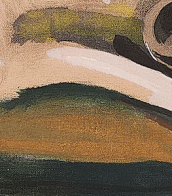

John von Wicht, birth name Johannes von Wicht was a German abstract expressionist painter.
He studied at the Royal School of Fine and Applied Arts in Berlin. There he was influenced by the urban avant-garde art scene. In 1911, von Wicht's work was included in the exhibition "Free Berlin Secession".
In 1923, von Wicht moved to the USA. While working for a mosaics company, John designed the vestibule for St Louis Cathedral in the typical Byzantine style.
Von Wicht's first attempt to represent abstraction in art was not until 1937, when he created the watercolour series The Force. Kandinsky's work had a clear influence on this series. John von Wicht was quickly recognised in the art world.
By 1950 von Wicht had dedicated himself fully to drawing and was able to explore his personal expression of abstraction as a mature artist, returning to drawing to solve problems of content and composition.
John von Wicht has marked his distinguished career with many awards, recognitions and memberships, such as American Abstract Artists. The decisive geometric elements that supported von Wicht's earlier work later felt a release of association, depicting an inner struggle with the subject. His works were gestural but carefully composed, allowing individual touch on the spiritual and natural realms of being. As an abstractionist painter, John von Wicht wanted colour to reach the viewer's emotions directly, through pure form. He left most of his work to the Syracuse University Art Collection.


John von Wicht, birth name Johannes von Wicht was a German abstract expressionist painter.
He studied at the Royal School of Fine and Applied Arts in Berlin. There he was influenced by the urban avant-garde art scene. In 1911, von Wicht's work was included in the exhibition "Free Berlin Secession".
In 1923, von Wicht moved to the USA. While working for a mosaics company, John designed the vestibule for St Louis Cathedral in the typical Byzantine style.
Von Wicht's first attempt to represent abstraction in art was not until 1937, when he created the watercolour series The Force. Kandinsky's work had a clear influence on this series. John von Wicht was quickly recognised in the art world.
By 1950 von Wicht had dedicated himself fully to drawing and was able to explore his personal expression of abstraction as a mature artist, returning to drawing to solve problems of content and composition.
John von Wicht has marked his distinguished career with many awards, recognitions and memberships, such as American Abstract Artists. The decisive geometric elements that supported von Wicht's earlier work later felt a release of association, depicting an inner struggle with the subject. His works were gestural but carefully composed, allowing individual touch on the spiritual and natural realms of being. As an abstractionist painter, John von Wicht wanted colour to reach the viewer's emotions directly, through pure form. He left most of his work to the Syracuse University Art Collection.

